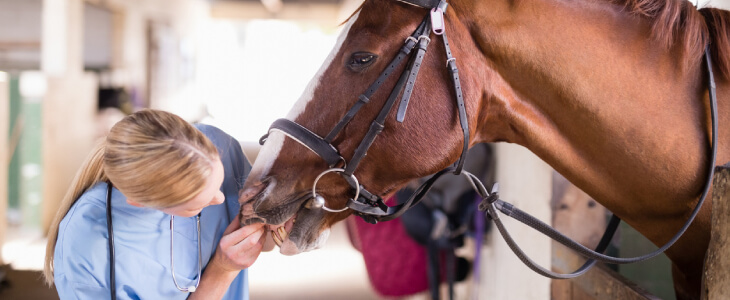As a horse owner, you understand that your horse requires regular medical care. Most equine veterinarians do a great job at caring for horses. However, everyone makes mistakes, including veterinarians. And, unfortunately, mistakes made by veterinarians can have serious consequences. In this article, we discuss proving veterinarian malpractice in an equine dispute.
What is Veterinarian Malpractice?
Like doctors, veterinarians are professionals who owe those they treat a duty of care. The duty of care for veterinarians is to provide the same level of attention and skill to an animal in a particular situation as other veterinarians in similar communities. When a veterinarian fails to provide the duty of care required, he or she may be liable for veterinary malpractice.
Proving Veterinary Malpractice
If your horse was harmed by a veterinarian, you may be entitled to significant financial compensation. However, you first must prove that the veterinarian committed malpractice. To do so, you must demonstrate that the veterinarian’s care fell short of the required standard of care. Typically, the standard of care in a veterinary malpractice case is what an average practitioner in your community would have done under similar circumstances. Proving the standard of care in an equine malpractice case usually involves enlisting the help of an expert witness to testify about this issue. In other words, simply demonstrating that your horse was harmed by your veterinarian isn’t enough to succeed in a veterinary malpractice case. Rather, you must specifically prove that your veterinarian’s substandard care harmed your animal.
In addition, to obtain financial compensation for veterinary malpractice, you must demonstrate that you suffered actual harm as a result of the veterinarian’s actions—harm to your horse isn’t enough. And in most cases, the emotional distress you may have experienced due to seeing your animal harmed isn’t enough either. Rather, you must demonstrate an objective financial loss of some sort to be eligible for financial compensation in a veterinary malpractice lawsuit.
Veterinary Malpractice Elements
The specific elements you must prove to succeed in a veterinary malpractice lawsuit are as follows:
- The veterinarian agreed to treat your horse;
- The veterinarian failed to meet the standard of care for treating your horse;
- Your horse was injured, killed, or became sicker due to the veterinarian’s carelessness or incompetence; and
- Due to your horse’s injury, you experienced some type of tangible, demonstrable harm.
Contact a Wellington Equine Law Lawyer
If your animal has been harmed by an equine veterinarian in the state of Florida, you need an experienced equine law lawyer on your side. At Gueronniere, P.A., we understand the financial and emotional losses that result from veterinary malpractice. Therefore, when you come to us for assistance with your veterinary malpractice case, our experienced and talented equine law lawyer will examine the facts of your case and diligently pursue financial compensation on your behalf. Please contact us as soon as possible to schedule a free and confidential initial consultation with our experienced and knowledgeable Florida equine law lawyer.

